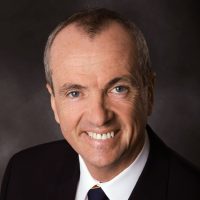A United Germany 25 Years Later
AGI is pleased to present this collection of essays reflecting on the 25th anniversary of German unification in October 2015. We are grateful to those who have contributed to this collection, all of whom have been affiliated with and supported the Institute in many different capacities. These essays leave us with thoughts not only about the past, but also about the future of German-American relations. Be sure to check back throughout the week for additional insights.
It seems so normal now. A unified Germany, as one of many; admittedly, the primus inter pares. The divided history is so distant, so last century. Its reunification is, perhaps, the world’s biggest geopolitical miracle of the past half century.
When we speak about the euro, NATO, energy, politics, sports, climate matters, whatever, we speak about Germany.
The impression is that this is the way it has always been. One Germany. Firmly embedded in NATO and the EU and the West. Never in doubt.
We all know better. While the credit for the fall of the Wall goes first and always to the brave citizens of the former East Germany, the reunification of Germany required a level of diplomatic deftness heretofore unseen in modern times.
Helmut Kohl, George H. W. Bush, and Mikhail Gorbachev (and their teams) deserve all the credit (and then some) that has come their way. It is the utter normalcy of today’s Germany that is the testimony to their extraordinary work. And today’s Germany behaves in different ways across the three principal channels of international engagement.
When we think of Germany in 2015, we think first of economic, currency, and trade matters. No country plays a bigger role in Europe in any of these questions. Partly because of its unique twentieth century history and partly because of the nature of its current leadership style, Germany likes being in clubs and couplets, and co-determining with others, most often France. But today there is no denying that, in matters broadly defined as economic, Germany stands alone on center stage, the other actors playing supporting roles. Germany is not comfortable in that skin.
As for security matters, the unified Germany continues apace on the long road toward maturity. Unlike France and the United Kingdom, Germany is not a nuclear power, nor will it be. No matter how much it spends on defense, how many NATO missions in which its military participates, or how many senior German officers man key posts at NATO headquarters, it will remain in its relative position to France and the UK. This dimension is particularly awkward given its unquestioned and singular economic might; Germany and its European counterparts are all slowly getting used to this dual persona.
If Germany’s economic and security might were not a sufficiently complicated reality, its emerging regional and global diplomatic strength adds an important and enriching aspect to its narrative. Among European nations, Germany—and Chancellor Merkel, in particular—are the consequential players in the Ukraine/Russian/Putin saga; they are one of the six powers dealing with Iran’s ambitions; and Germany stands behind only the U.S. in its significance to Israel’s well-being and security. It must be repeated that while these central roles may have been played in any event by Germany, Angela Merkel’s personal leadership has accelerated Germany’s emergence as a pivotal and vital diplomatic player.
For all of the justifiable reflection, let us hope that this milestone prompts us to project—what roles will Germany be playing on the European and world stages in 25 years, in 2040? Will its commercial and economic might continue to strengthen? I believe, yes, particularly outside of Europe and, specifically, in Asia and the Americas.
Will its gradual “coming of age” as a security partner continue and approach a persona commensurate with its economic heft? Yes and no. It will continue to evolve, because it must, but Germany will not become a fully formed security power.
Finally, as its current diplomatic strength is so tied to the personal leadership of Angela Merkel, it is hard to say what role Germany will assume in the realm of statecraft in 2040. We should hope for a big one.
So celebrate we will the 25th anniversary of the reunification of Germany. But let us never forget where we all were—and Germany was—in those heady days and how far it has come. Let us work diligently with it to ensure that Germany in the next 25 years is all it can be.
Philip D. Murphy was U.S. Ambassador to Germany from 2009 to 2013.









